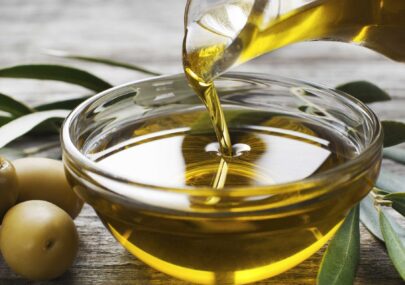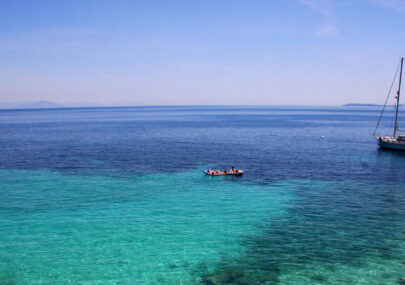
Corfu Easter: Why you’re missing out not having experienced it yet
We’re going to let you in on a little secret: Corfu Easter may be even better than Corfu summer!
The secret’s out.
We’re guessing this is a surprise for you! Chances are you thought that Corfu was all about sandy beaches, azure waters and luxurious Corfu hotels.
Well, Corfu is many more than this.
And the best way to discover it yourself, adding a spiritual twist in your trip, is to visit Corfu in Easter time!
But, what’s so special about Corfu Easter anyway?
Keep reading to find out everything about the local customs, specialties and events that take place in Corfu every single day of the Easter week!
Corfu Easter in a nutshell
To put it simply, Corfu Easter is the definition of glory.
It’s not a coincidence that Corfiots also call Easter “Lambri”, which means brightness. This is exactly what Corfu Easter is: bright. And this brightness refers not only to the spectacular festivities, but also to the spiritual brightness of these days!
Celebrated in spring, Easter in Corfu is the perfect chance to enjoy the great weather, the lush greenery of the island and endless sunny strolls around Corfu Town. What’s more, it’s a great opportunity to experience the local traditions and the Corfiot way of living, firsthand.
So, if you haven’t already ticked Corfu off your bucket list, Corfu Easter is the perfect chance to do so!
The glorious Easter festivities start on Palm Sunday and continue until Easter Sunday. The interesting part is, even though Greek Orthodox Easter and Catholic Easter are not celebrated the same days, Catholic churches participate in the festivities of Orthodox Easter.
This sense of community and togetherness is what makes Corfu Easter unique!
Every year, thousands of people from Greece and all over the world come together in Corfu town, the center of the festivities, to celebrate Easter.
It’s not hard to guess why!
Traditional customs, events, lots of music, delicious food and spiritual vibes are going to make you fall even deeper in love with Corfu.
But let’s see thoroughly what happens in Corfu each day of the Easter week!
Day 1: Palm Sunday
The day starts in 11.00, when the procession of the Holy Shrine of Saint Spyridon takes place. This tradition dates back in 1630, when it first took place in the memory of the victims of a deadly plague that hit Corfu in 1629.
This is the largest in size litany in Corfu, in which all the philharmonic orchestras of the island- 18 in total- participate. When the litany is completed, the philharmonics parade around Corfu Town, playing marches!
Tip: Make sure you don’t miss the concert by “Mantzaros” Philharmonic orchestra, held at the Municipal theater in the evening of the same day.
Day 2: Great Monday
This is the day when the Easter preparations officially begin! The locals start doing their Easter shopping, which, of course, includes the best local specialties, such as “Fogatsa”, “Mantolato” and “Kolombines”. In the afternoon, the church bells ring, inviting people to the evening service.
Day 3: Great Tuesday
After the evening service, which takes place around 9.00 p.m., it’s time for the annual Easter theme poetry and music night: “From Calvary to the Resurrection”, organized every year by the Organization of Corfiot Activities at the peristyle of Saint Michael and George Palace.
Day 4: Great Wednesday
Today, the lanterns in Corfu Town, the Palace and the streets are illuminated with purple light, a sign of grief, while in the noon, people go to the church to hear the Unctions.
In the late afternoon, around 8.30 p.m. everyone goes to Corfu’s Municipal theater, where the Municipal choir performs the annual ecclesiastical music Easter concert.
Day 5: Maundy Thursday
This is an egg painting day! Today, the locals paint eggs red, a color that symbolizes rebirth, due to the upcoming Resurrection of the Christ.
On the same day, “12 Gospels” are sung in every church, while an interesting ritual takes place in Duomo, the Catholic Cathedral. During this ritual, there are 12 candles lit and each time one of the “12 Gospels” is read, one candle is blown out.
After the “12 Gospels” have been read, the Archbishop of the Cathedral, washes the feet of 12 children, symbolically representing Jesus washing the feet of His 12 students. This is a very special ceremony, worth attending!
Day 6: Good Friday
Today, we’re just a day away from the celebration of Jesus’ Resurrection!
On Good Friday, the streets of Corfu town fill with mournful marches played by the island’s philharmonic orchestras.
In the morning, the ritual of the Descent of the Christ from the Holy Cross takes place in the islands’ churches. During this ritual, Jesus’ figure is actually removed from the cross and put in the epitaph.
After that, all the town’s churches start the procession of their epitaphs, which are beautifully decorated with flowers by the young girls of the island. After been processed around Corfu town, they finally gather at the center of the town.
So, let us set the scene! In Corfu town, 33 epitaphs are processed, symbolically representing Jesus’ age. They all follow the same route and have the same order every year.
Corfu Town’s philharmonic orchestras accompany the epitaphs, each of them playing a specific piece of music for the occasion. The “Old” philharmonic orchestra plays Adagio by Tomaso Albinoni, “Mantzaros” philharmonic orchestra plays Marcia Funebre by G. Verdi and “Kapodistrias” philharmonic orchestra plays Mariani’s Elegia Funebre and Chopin’s Marche Funebre. The atmosphere is magical, with the crowd following the epitaphs, holding lit candles, lighting up the night.
The first epitaph that comes out of the church for the procession is the one of Panagia Spileotissa church at the New Fortress area. The same time, the epitaph of Pantokrator’s church in Kampiello, also starts its procession.
The epitaphs’ processions ritual is completed with the procession of the impressive epitaph of Corfu Cathedral, which comes out of the church at 10.00 pm and returns almost at midnight. This is the most glorious procession, as it is accompanied by a philharmonic orchestra and Venetian style lights, called “manualia”.
Taking part in the epitaph’s processions is an unforgettable experience!
Day 7: Good Saturday
Easter celebrations are at their peak on Good Saturday! And believe us when we say this, watching and taking part in the customs of Good Saturday, is one of the best things to do in Corfu.
So let’s start!
At 6.00 in the morning, an interesting ritual takes place in the church of the Virgin Mary “Xenon” in Saint Spiridon. An artificial earthquake is caused, to represent the earthquake during the resurrection, as described in the Holy Bible.
Later at 9.00, the procession of Saint Spyridon’s relics and epitaph starts. Even though the epitaph processions are a Good Friday tradition, the epitaph of Saint Spyridon– the patron Saint of Corfu- is an exception! This is the oldest epitaph procession in Corfu, started in 1550, in commemoration of Saint Spyridon, who reportedly saved the island from a fatal famine.
The procession is, of course, accompanied by three of the island’s philharmonics, playing mournful marches. “Mantzaros” philharmonic orchestra plays Micheli’s “Calde Lacrime”, the “Old” philharmonic plays Faccio’s “Amlet” and “Kapodistrias” philharmonic plays Beethoven’s “Marcia Funerbe”.
“First Resurrection”
At 11.00, the so-called “First Resurrection” takes place inside the island’s churches.
The bells of the churches ring cheerfully and the famous “Botides” custom takes place in Corfu Town.
What is this custom about?
People throw big clay pots filled with water from their balconies, while the crowd watches the spectacle and the island’s philharmonics play religious marches. This custom has its origins in the Venetian occupation, when people used to throw their old stuff from the balconies in New Year’s Eve, expecting from the new year to bring them new things. According to others, this custom originates from ancient times, when people used to throw away their old clay pitchers in April, in order to fill the new ones with fruits. Either way, it’s still a very popular custom in Corfu!
At the same time, another custom, named “Mastella”, takes place in Pinia area, in the city center of the Old Town. A big barrel, full of water is placed by the road. Everyone passing by should throw a coin in it. When the “First Resurrection” happens, a random person passing by is chosen to be thrown in the barrel, to collect the coins from its bottom.
In the night, the Catholic mass of the Resurrection takes place in the Catholic Cathedral at 10.00 pm and ends by 11.00 pm. This happens so that people can also attend the Orthodox mass of the Resurrection and celebrate together.
Day 8: Easter Sunday
The midnight of Easter Sunday is when the Resurrection of the Christ is celebrated with glory!
Now, this is our favorite bit!
This celebration of the Resurrection of Christ takes place in Upper Spianada Square, which is full of people holding lit candles. When the clock ticks 12.00, fireworks light up the night sky and the island’s philharmonics start playing cheerful marches to celebrate Christ’s Resurrection. When the celebrations in Spianada Square are over, the philharmonics march around Corfu Town, playing cheerful marches, while the crowd follows them, singing along.
The celebration continues with an epic dinner, traditionally consisting of the all-time favorite Corfiot dish, “tsilichourda”, which is a type of meat soup, “fogatsa”, which is a traditional Corfiot brioche, red eggs and, of course, plenty of wine!
On Easter Sunday morning, many events take place around Corfu, including singing and dancing to folk music. The traditional Corfiot lunch of the day is a yummy meat soup with an egg-lemon sauce. On Monday after Easter, Corfiots gather to eat the traditional Greek Easter meal, roasted lamb on a spit and “kokoretsi”. And this is the best way to close this glorious week!
So, to sum up, Corfu Easter a unique experience!
The traditional local customs, the glory and the strong sense of community will make you feel like a real Corfiot!
Don’t spend any more time thinking about it. Book your trip and a luxury Corfu hotel and you’ll have the chance to join the most spectacular Easter celebration in Greece.
Trust us, you’ll be glad you did!















